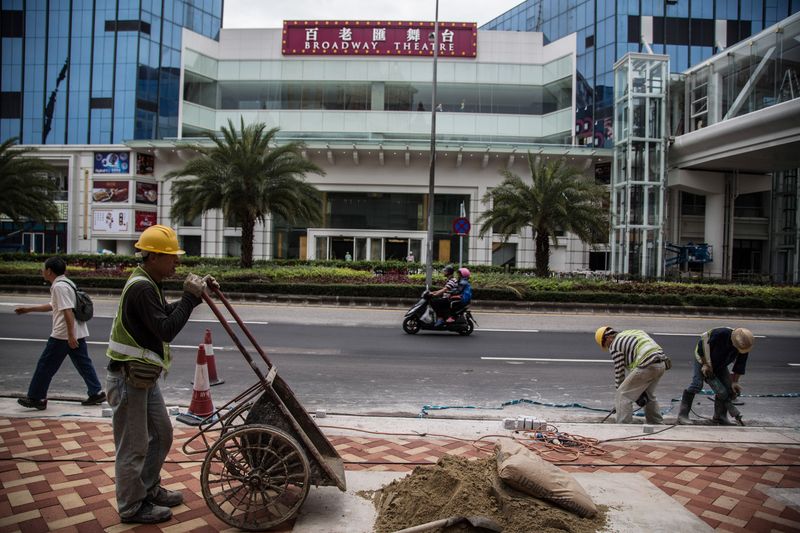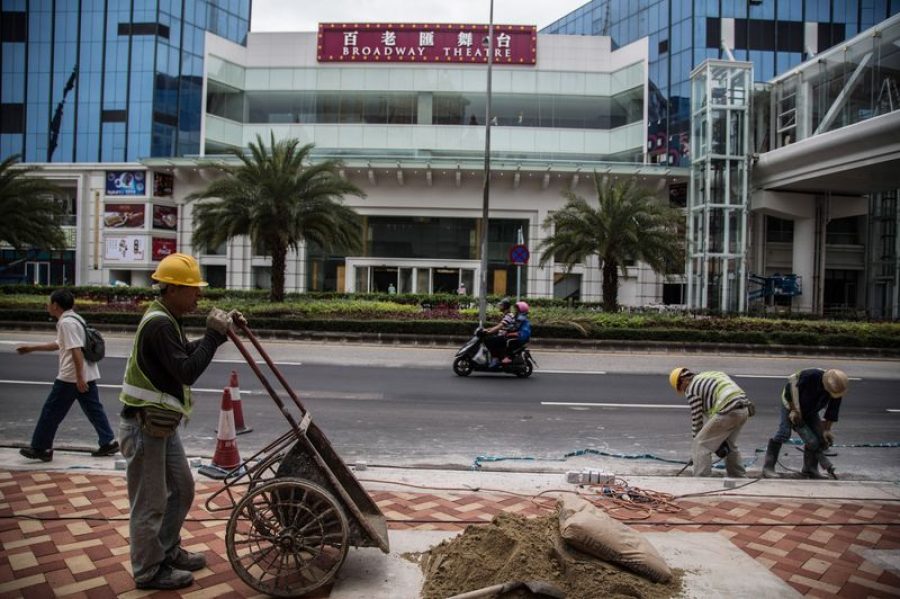The government’s Road Projects Coordination Group failed to coordinate such projects by different government entities or public utilities to ensure that disruptions to the public are kept to a minimum, the Commission of Audit (CA) said in a hard-hitting report on Monday.
The report can be downloaded from the commission’s website http://www.ca.gov.mo/, in Chinese and Portuguese language versions.
According to the report, the government set up the interdepartmental Road Projects Coordination Group in 2009, with the aim of reducing the adverse impact of roadwork projects on residents. The group, coordinated by the Transport Bureau (DSAT), consists of DSAT officials, Civic and Municipal Affairs Bureau (IACM) officials, officials from a number of other government entities, as well as representatives from seven public utilities.
According to the report, the Civic and Municipal Affairs Bureau is responsible for approving applications for roadwork projects and issuing roadwork permits. According to the law, if any particular roadworks are to be carried out at the same location within two years after a roadwork project was carried out there, the respective entities who apply to carry out the roadworks have to pay compensation.
The group also aims to ensure that roadwork projects by different government entities or public utilities will not be carried out at the same location within a two-year period, according to the report.
The objective of the audit was to assess whether IACM officials exercised proper supervision on how roadwork projects were being carried out and whether the Road Projects Coordination Group had been able to ensure that roadwork projects by different government entities or public utilities would not be carried out at the same location within a two-year period.
According to the report, roadworks carried out by government entities include the resurfacing of existing roads and the construction of new roads. Relevant government entities are not required to apply for a roadwork permit for such projects from the Civic and Municipal Affairs Bureau.
Private roadwork projects refer to those carried out by public utilities, including electricity, water, telecommunication, cable television and natural gas services, the report says, adding that public utilities are required to apply for a roadwork permit for their projects from the Civic and Municipal Affairs Bureau.
According to the report, there were a total of 3,458 roadwork projects in the city in 2014 and 2015, of which 3,257 were roadworks carried out by private entities – 94.2 percent of the total.
Out of the 3,257 private roadwork projects in 2014 and 2015, 946 projects were emergency roadworks, or 29 percent of the total, while the remainder were non-emergencies, according to the report.
Taking Rua Nova à Guia as an example, the report points out that a total of 25 roadwork projects were carried out in different sections of the road in 2014 and 2015.
According to the report, the Civic and Municipal Affairs Bureau is also responsible for supervising how roadwork projects are proceeding. IACM inspectors are supposed to carry out on-site inspections of roadwork projects, with the aim of ensuring that the projects are completed within the time period that the bureau has approved.
The commission found that IACM inspectors, however, failed to make proper on-site inspections, the report says, adding that a number of inspectors were found to have included false information in their inspection logbooks.
An example in the report shows that an IACM inspector wrote in his logbook that it was a rainy day on a certain day in June 2014 and that this day did not constitute part of permitted construction days for ongoing roadwork projects. The commission, however, found that the IACM inspector had a day off on that day and that there was no rainfall on that day, the report says.
In the concluding remarks, the report says that the proper coordination of roadwork projects is needed to create a better city in accordance with the government’s Five-Year Development Plan. The report says that the negative impact on residents caused by roadwork projects “has existed for a long time”.
The number of times that the city’s roads have been dug up and caused disruptions has been severe, the report says.
The government has planned roadwork projects in a “careless” way so that the repetition of roadworks at the same location is a common occurrence, the report says, adding that the phenomenon is “rare internationally”.






